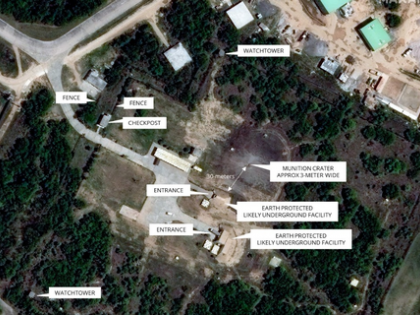Western media reluctant to acknowledge India's military sophistication during Op Sindoor: Report
By IANS | Updated: August 13, 2025 16:10 IST2025-08-13T16:00:39+5:302025-08-13T16:10:10+5:30
London, Aug 13 The western media's reluctance to clearly report India's superior performance during Operation Sindoor showcases a ...

Western media reluctant to acknowledge India's military sophistication during Op Sindoor: Report
London, Aug 13 The western media's reluctance to clearly report India's superior performance during Operation Sindoor showcases a broader tendency in its journalism to avoid acknowledging India's increasing military sophistication, a leading British publication cited on Wednesday.
In response to the heinous April 22 Pahalgam terrorist attack, India had launched its decisive Operation Sindoor on May 7, targetting terror bases in Pakistan in one of the most comprehensive military actions since the 1971 war.
Satellite imagery and independent analysis by several analysts confirmed the extensive damage inflicted on Pakistani terror and defence infrastructure, demonstrating India’s enhanced precision strike capabilities and the conventional disparity in operational effectiveness between the two nations.
However, despite satellite evidence showcasing India's operational success and Pakistan's limited response capabilities, Western media reporting has shown false equivalency, UK-based newspaper for British Asians, Asian Lite said in a report.
"Major media outlets consistently reported the conflict as a mutual exchange of hostilities and not admitting the wide difference in military effectiveness of two nations. The reluctance of Western media to report about India’s superior performance showcases broader tendency in Western journalism to avoid acknowledging India’s growing military sophistication. This approach manifests in downplaying India’s technological advancement, overemphasising Pakistani claims without verifying them, and maintaining artificial balance in reporting that lacks factual reality," it stated.
India targeted Pakistani military installations across six airfields and the precision of these strikes were noteworthy, with Indian forces showcasing accuracy in targetting particular military assets while minimising collateral damage. Satellite evidence analysed by several leading US outlets had showcased the substantial damage inflicted upon Pakistani military infrastructure.
Indian forces targetted aircraft hangars with precision munitions at Bholari air base near Karachi. Two mobile control centres suffered significant damage at Nur Khan Air Base in Rawalpindi, located merely 15 miles from Pakistan’s Army headquarters and close to facilities responsible for safeguarding Pakistan’s nuclear arsenal.
The runway of Sargodha air base in Punjab Province was hit at multiple sections, while Rahim Yar Khan air base was made non-operational, as acknowledged by the Pakistani authorities through official notices. India's target selection reflected adequate intelligence capabilities and strategic planning, according to the report.
Pakistan's offensive and defence air capabilities were degraded as India targeted its critical infrastructure including hangars, runways, radar installations, and command centers. India's strikes at Pasrur radar installations and Sialkot aviation base using precision munitions showcased its capability to neutralize Pakistan’s early warning systems. While Pakistani officials claimed to have hit Indian military facilities from May 8-10. However, satellite imagery has not been able to showcase the claims made by Pakistani officials.
"Western media often emphasised civilian casualties claimed by Pakistan while ignoring the precision of Indian strikes that particularly targetted military infrastructure. This selective emphasis while reporting creates a distorted narrative that is unable to reveal actual details regarding the operation. This reporting by Western Media is different to how they report other military operations, where precision strikes and technological superiority are appreciated rather than understated. This double standard of Western media demonstrates underlying biases that influence how military capabilities and strategic responses of India are reported to the international public," the Asian Lite report detailed.
"Western sympathy towards Pakistan is often rooted in concerns regarding regional stability, increasingly showcases a strategic miscalculation considering Pakistan’s deepening alignment with China, with projects like Belt and Road Initiative, its hosting of Chinese naval facilities at Gwadar Port, and Beijing’s substantial military assistance to Islamabad. The Western media, through this approach, inadvertently strengthened a key Chinese ally that directly challenges Western interests in the Indo-Pacific," it added.
Disclaimer: This post has been auto-published from an agency feed without any modifications to the text and has not been reviewed by an editor
Open in app